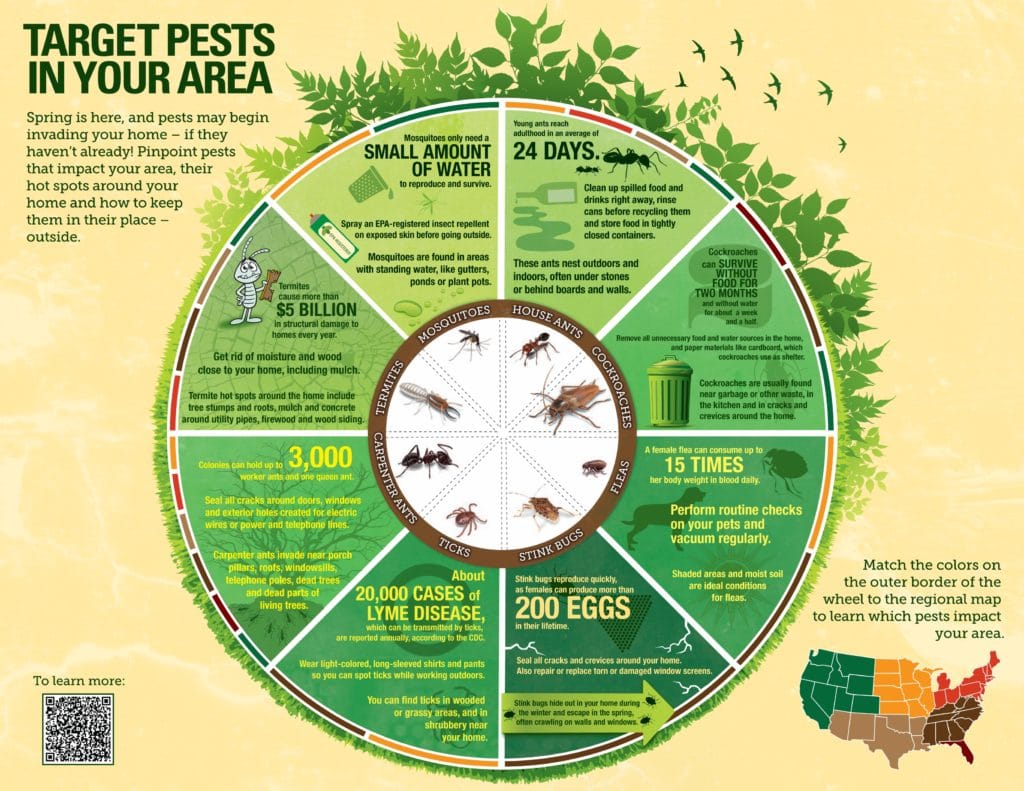Pest-Proofing Your Garden: Tips For Keeping Outside Bugs Away
Pest-Proofing Your Garden: Tips For Keeping Outside Bugs Away
Blog Article
Article By-Dunlap Espersen
Visualize your garden as a shelter, a place of serenity and elegance. Nonetheless, the visibility of exterior pests can quickly disrupt this idyllic image. Suppose there were simple yet effective methods to maintain these undesirable site visitors at bay and secure your garden sanctuary? By following a couple of useful tips and applying natural approaches, you can produce a harmonious outside area where your plants can flourish uninterrupted.
Natural Insect Deterrents
To maintain insects away from your garden normally, plant fragrant herbs like mint and lavender. These great smelling plants not only include charm to your garden however additionally act as efficient bug deterrents. Pests like mosquitoes, flies, and even some garden-damaging pests are driven away by the strong fragrances discharged by these herbs. Merely placing them strategically around your yard can help produce a natural barrier versus undesirable parasites.
In addition to mint and lavender, consider planting other natural herbs like rosemary, basil, and lemongrass to even more enhance your yard's pest-proofing capacities. These herbs not only act as all-natural repellents yet likewise have actually the added advantage of being useful in cooking or crafting homemade solutions.
Strategic Plant Placement
Take into consideration the format of your garden and the sorts of plants you need to strategically place them for optimum pest-proofing performance.
Start by organizing plants with comparable resistance to pests with each other. By doing this, you can develop a natural barrier that prevents pests from spreading out throughout your yard.
In addition, putting pest-repelling plants like marigolds, lavender, or mint near more vulnerable plants can assist safeguard them. Tall plants, such as sunflowers or corn, can serve as a guard for much shorter plants against parasites like bunnies or ground-dwelling bugs.
Bear in mind to leave enough room in between plants to enhance air flow and reduce the threat of conditions that pests may lug.
In addition, think about planting strong-smelling herbs like rosemary or basil near prone plants to confuse pests' senses and make it harder for them to find their targets.
Effective Insect Control Approaches
For combating garden parasites properly, implementing a multi-faceted insect control approach is important. Start by urging https://archerwmdti.blogdanica.com/27026911/looking-for-an-eco-friendly-means-to-keep-rodents-at-bay-discover-our-overview-to-all-natural-bug-control-approaches-for-a-lasting-solution-to-your-rodent-distress like birds, ladybugs, and praying mantises to assist keep parasite populations in check. Introducing plants that bring in these helpful pests can aid in pest control. In addition, exercising good garden health by getting rid of debris and weeds where insects may conceal can make your garden less congenial to undesirable visitors.
Think about using physical barriers such as row cover fabrics or netting to shield susceptible plants from insects like caterpillars and birds. Applying organic chemicals like neem oil or insecticidal soap can likewise work versus certain bugs while being much less unsafe to advantageous insects and the atmosphere. It's vital to rotate your crops each season to avoid the build-up of bug populations that target particular plants.
On a regular basis inspect your plants for signs of insect damages so you can take action without delay. By integrating these techniques and staying vigilant, you can effectively manage garden parasites and appreciate a flourishing, pest-free garden.
Verdict
So, there you have it - with the appropriate techniques, you can keep pesky outside parasites far from your garden and help your plants thrive.
Did best outdoor mosquito control understand that planting mint has been revealed to ward off insects and other insects, reducing the need for damaging pesticides by up to 60%?
By incorporating natural deterrents and wise growing methods, you can develop a beautiful and pest-resistant garden oasis for you to delight in.
